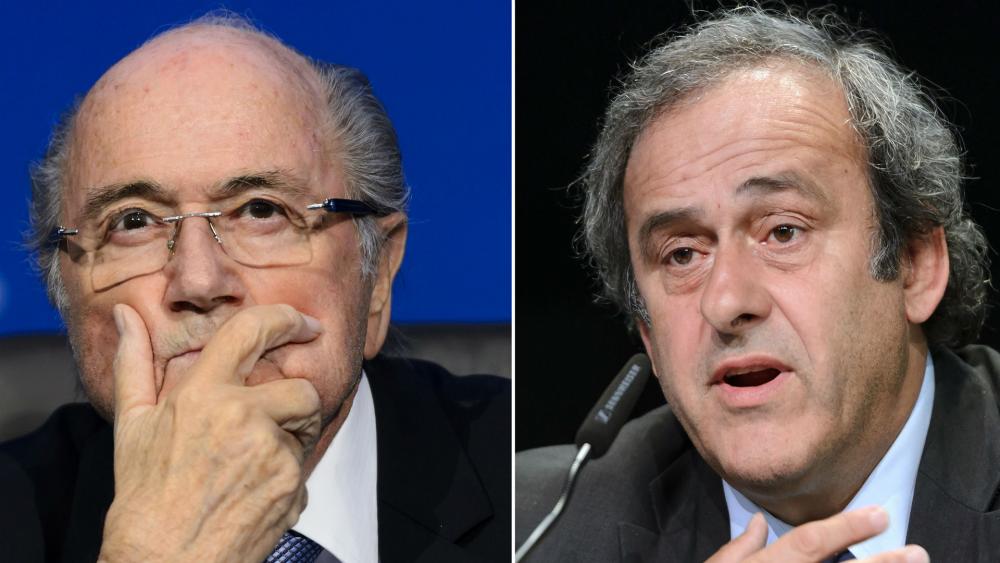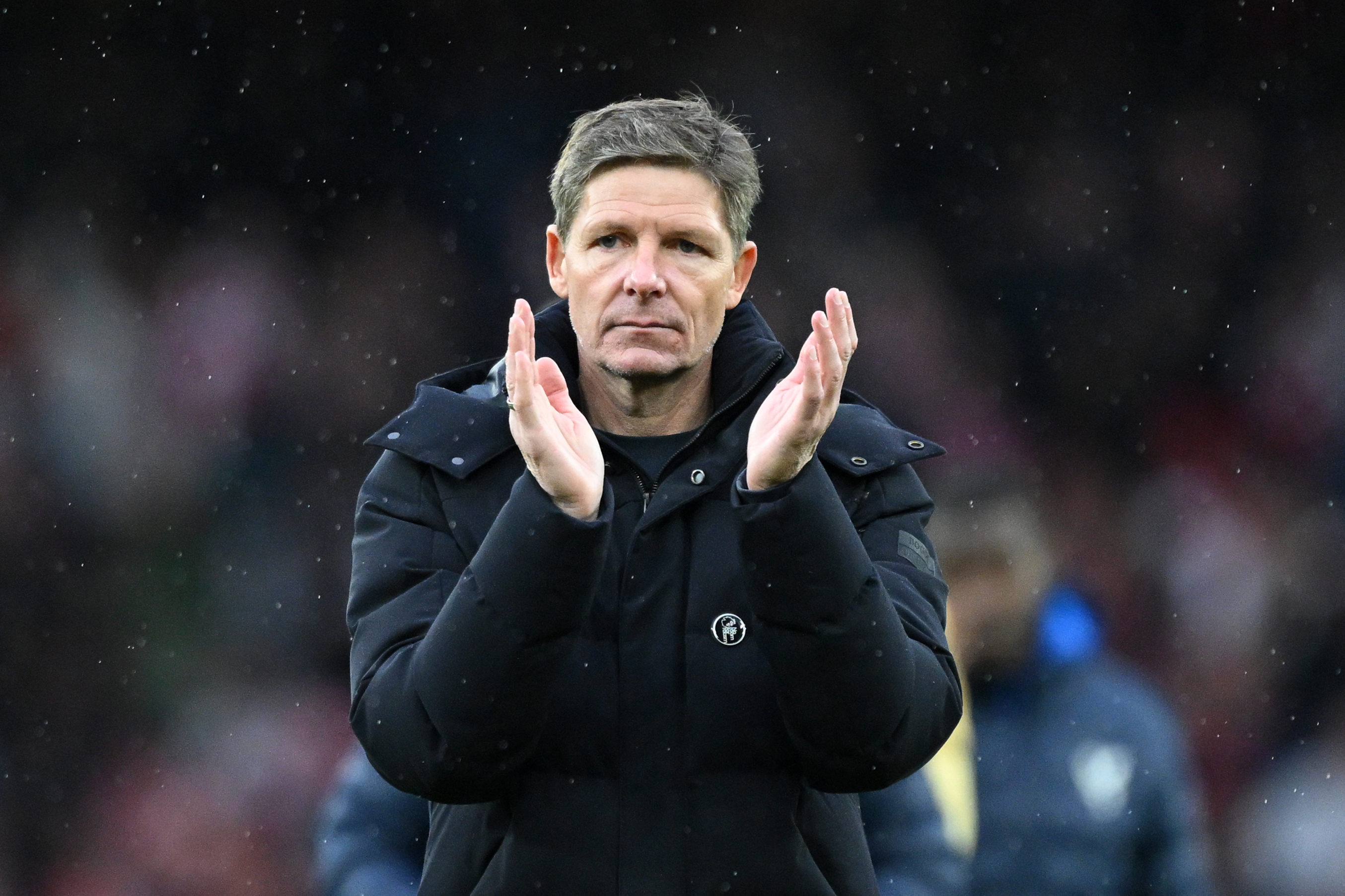FIFA election: How the scandal unfolded
Ahead of the FIFA presidential election, we look at how events unfolded as the game's governing body became engulfed in scandal.

A new FIFA president is set to be elected on Friday - the latest chapter in a tumultuous nine months for world football's governing body.
With a corruption scandal engulfing the organisation, Sepp Blatter announced his planned resignation before being banned from all football-related activities for eight years after allegations of a "disloyal payment" made to Michel Platini.
UEFA president Platini, previously a contender to replace Blatter in the top job at FIFA, was also banned for eight years as the sport was shaken to its very core.
Here, we look at how events unfolded leading up to Friday's election.
May 27: Swiss authorities arrest seven top FIFA officials, including vice-presidents Jeffrey Webb and Eugenio Figueredo, as part of a United States investigation into alleged widespread corruption throughout the organisation.
May 29: Despite the ensuing unrest from the raids, Blatter is re-elected as president for a fifth term after Prince Ali Bin al-Hussein withdraws ahead of the second round of voting.
The best features, fun and footballing quizzes, straight to your inbox every week.
June 1: US authorities claim FIFA secretary general Jerome Valcke paid $10million in conjunction with ex-FIFA executive committee member Jack Warner in a trade for votes for South Africa's bid to host the 2010 World Cup.
June 2: Blatter announces his decision to resign, calling for elections to determine his successor – later confirmed for February 26, 2016.
June 3: Former FIFA executive and CONCACAF secretary general Chuck Blazer admits taking bribes for South Africa to host the World Cup in 2010. He is later handed a lifetime ban from all football-related activity.
July 20: Simon Brodkin, a British comedian, showers Blatter with fake money during a news conference.
July 24: Valcke announces his intention to resign as secretary general in February.
July 29: Platini announces his candidacy to replace the outgoing Blatter in the next elections.
August 7: An internal investigation into the corruption allegations is launched by FIFA.
September 9: Prince Ali announces he will run for the presidency.
September 25: Criminal proceedings are opened against Blatter by Swiss prosecutors in regard to an alleged "disloyal payment" made to Platini in 2011, though the pair deny any wrongdoing.
October 8: Blatter and Platini are handed provisional 90-day bans from all football-related activities.
October 9: The Swiss petitions the FIFA Appeals Committee in a bid to have his suspension annulled.
October 10: The UEFA chief follows suit and files his appeal, hoping to salvage his bid for presidency.
October 16: Blatter discloses details of a two million Swiss francs payment to Platini in 2011 for work carried out for FIFA, the reason behind their bans.
October 19: Platini admits a lack of a written contract for the payment in an interview with Le Monde, insisting it was instead "a gentleman's agreement".
October 28: In comments to Russian news agency TASS, Blatter blames the Frenchman for the scandal, claiming a "personal attack" and UEFA-led changes in the 2022 World Cup bidding process were at the root of the corruption allegations.
November 11: Outgoing president Blatter is admitted to hospital following stress-related issues.
November 12: The five candidates for February's presidential elections are confirmed by FIFA, with Platini and Liberia Football Association chairman Musa Bility not included - the latter after failing an integrity check. The candidates are Prince Ali, Jerome Champagne, Gianni Infantino, Sheikh Salman bin Ebrahim al-Khalifa and Tokyo Sexwale.
November 18: Blatter and Platini's bans are upheld by the the FIFA Appeals Committee. The former's lawyer claims there is no evidence of "improper motivation" for the payment made to the Frenchman.
November 20: Platini files an appeal with the Court of Arbitration for Sport (CAS) in a bid to overturn the decision so he can begin campaigning in the presidential race.
November 23: The adjudicatory chamber of the Independent Ethics Committee opens formal proceedings against the pair.
December 7: A BBC investigation links Blatter to a $100million bribery scandal, with sports marketing company ISL allegedly paying former FIFA officials Ricardo Teixeira and Joao Havelange for television and marketing rights in 1990s, asserting the Swiss had knowledge of the situation.
December 15: Blatter issues an open letter likening the Ethics Committee proceedings against him to "the Inquisition".
December 17: Blatter's lawyer states his belief the suspension should be lifted following a hearing with the Ethics Committee.
December 21: FIFA's Ethics Committee announces eight-year bans from all football-related activities for Blatter and Platini. The outgoing president confirms his decision to launch an appeal with FIFA Committee and CAS.
January 25: Sexwale is asked to explain his "low-profile" presidential campaign by the South African Football Association.
February 12: Valcke is banned from all football-related activity for 12 years.
February 15: Platini vows to clear his name at an appeal hearing. Blatter does the same three days later.
February 18: FIFA Ethics Committee calls for lifelong bans for former CONMEBOL vice-presidents Luis Bedoya and Sergio Jadue, who had earlier pleaded guilty to racketeering conspiracy and wire fraud conspiracy.
February 19: In an interview with The Times, Blatter insists Qatar did not buy the 2022 World Cup.
February 23: Prince Ali appeals to CAS to have Friday's elections suspended, after his request for transparent voting booths to be used was refused. CAS subsequently rejects the appeal.
February 24: FIFA dismisses appeals from Blatter and Platini against their suspensions from football-related activities, but reduces both bans from eight to six years. The Ethics Committee also opens proceedings against Bedoya and Jadue.
 Join The Club
Join The Club





